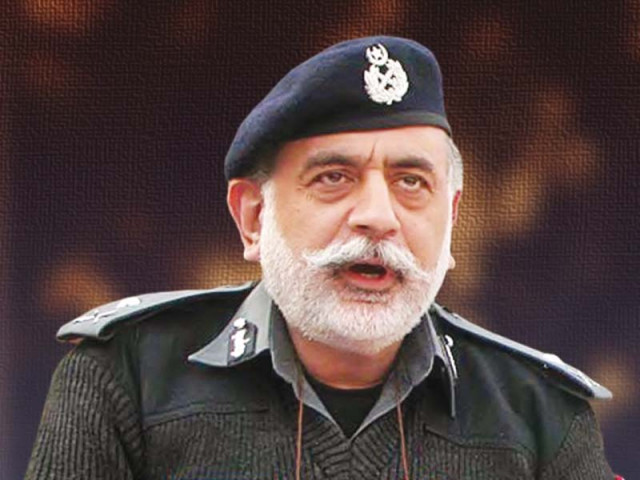Police, politics and power
The future of policing in a province that has seen more than its fair share of terrorist incidents is at hazard

Nasir Khan Durrani. PHOTO: FILE

Boiled down to essentials the government has two options neither of which do anything to advance democratic process. Either it can make the sweeping revisions demanded by those moving amendments thus diluting the bill — a good or a bad thing depending upon position — or the government can bulldoze the bill through the assembly. More than 70 amendments have been proposed, and some of the PTI own lawmakers working together with the opposition have submitted amendments aimed at cutting down unprecedented powers to be given to the Inspector General of Police (IG) as well as his appointment and transfer. They also wish to see amendments to the role of the government, the establishment of the force, the mechanism of accountability and the powers of the chief minister.
Little of this is going to go down well with PTI chief Imran Khan who has said — on Twitter, no less, the platform of choice for people aspiring to power these days — that the bill will not be rolled back and that complete autonomy will be given to the police in the province and that there would be no political influence. This would be a first for Pakistan were it to be achieved, but clearly the politicians are unhappy to see their powers to appoint and unseat, make adjustments and generally act as if the police were an extension of their own personal security forces — eroded.
The Chief Minister of K-P quite possibly out of desperation formed yet another subcommittee of the Select Committee to rephrase Clauses 7, 14 and 72 which describe the constitution of the Police Establishment, the procedures for the appointment of the Inspector General of Police (IG) and the powers of the chief minister respectively. The Chief Minister is going to have to think again because the meeting was postponed on Tuesday 17th January. Reports emanating from the last meeting of the Select Committee said that the Chief Minister was angered by the IG, and told him that the police do not listen to his directions. The CM cited the instance of a DSP he had suspended in Peshawar only to find him reinstated a week later. The CM asked rhetorically what powers he had in the province if his orders to the police were not carried out? It was later reported that the suspended/reinstated officer was again suspended.
This ludicrous state of affairs cannot be allowed to continue. The future of policing in a province that has seen more than its fair share of terrorist incidents is at hazard. The view of the government is that the bill confers powers on the IG that give rise to constitutional issues. The view of the opposition as well as some members of the PTI is that the IG should have operational autonomy but the administrative powers and financial powers and including hiring and firing, would remain with the CM. Concerns have been expressed that the police were seeking to create what amounted to a state-within-a-state that was opaque and unaccountable politically. With less than 14 to go before a resolution has to be arrived at this divisive bill has the potential to do lasting damage — rather than the opposite. Bulldozers, anybody?
Published in The Express Tribune, January 18th, 2017.
Like Opinion & Editorial on Facebook, follow @ETOpEd on Twitter to receive all updates on all our daily pieces.















COMMENTS
Comments are moderated and generally will be posted if they are on-topic and not abusive.
For more information, please see our Comments FAQ